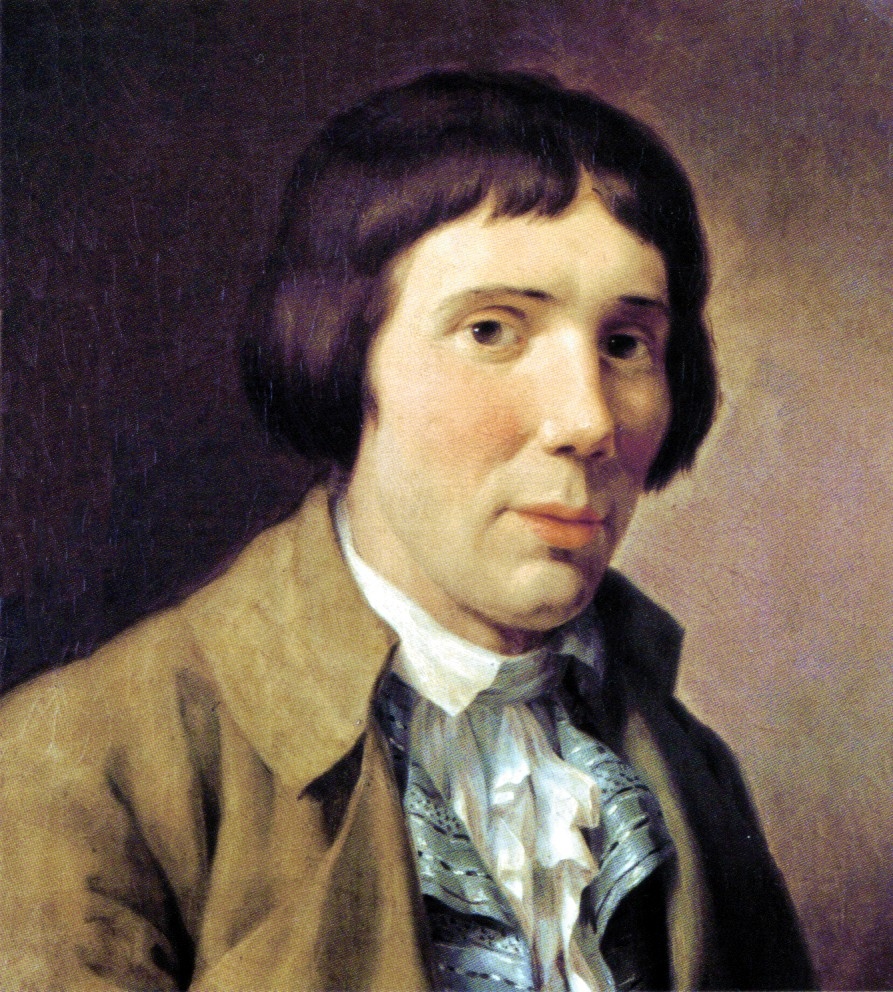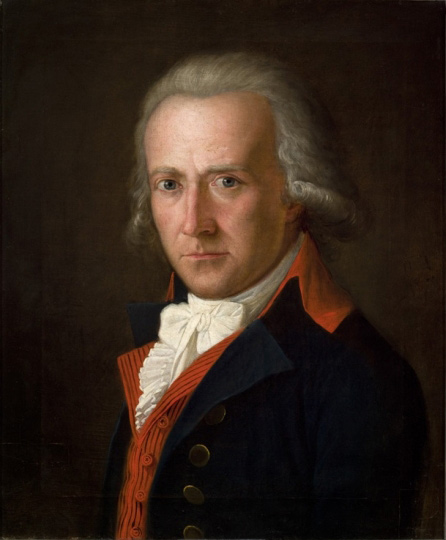|
Philanthropinum
The Philanthropinum (''from Greek: φίλος = friend, and άνθρωπος = human'') was a reformist, progressive school in Dessau, Germany from 1774 to 1793. It was based on the principles of philanthropinism, an educational movement developed in the German-speaking area during the Age of Enlightenment. History The Philanthropinum, or "School of Philanthropy," was founded on 27 December 1774 by the German educational reformers Johann Bernhard Basedow (1724–1790) and Christian Heinrich Wolke (1741–1825). Basedow was influenced by ideas on childhood and education as proposed by John Locke (1632–1704) and Jean-Jacques Rousseau (1712–1778). At the beginning the Philanthropinum had only one teacher and three students, but numbers rapidly grew as its reputation spread beyond Dessau. Prince Franz supported the school, both financially and with his gift of the Palais Dietrich as a venue. [...More Info...] [...Related Items...] OR: [Wikipedia] [Google] [Baidu] |
Johann Bernhard Basedow
Johann Bernhard Basedow (11 September 1724 – 25 July 1790) was a German educational reformer, teacher and writer. He founded the Philanthropinum, a short-lived but influential progressive school in Dessau, and was the author of "''Elementarwerk''", a popular illustrated textbook for children. Early life Basedow was born in Hamburg, the son of a wigmaker. His father (Heinrich Basedau) has been described as "severe almost to brutality", and his mother, Anna Maria Leonhard, as suffering from "melancholy almost to madness", which made his childhood a less than happy one. It was planned that he should follow his father's profession, but, at the age of 14, he ran away from home, finding employment as a servant of a country physician in Holstein. His employer recognized Johann's extraordinary intellectual gifts and sent him back home to his parents with a letter which persuaded them to allow their son to be schooled at the Johanneum in Hamburg.Lang, 1891 Here, Johann came under th ... [...More Info...] [...Related Items...] OR: [Wikipedia] [Google] [Baidu] |
Philanthropinism
Philanthropinism (also philanthropism) comes from the Greek φίλος (friend) and άνθρωπος (human). It was an educational reform movement in the Age of Enlightenment in the German-speaking area, established in the second half of the eighteenth century. The programme aimed at educating a new man and at the same time at reforming society. The philanthropinists’ ideas of teaching children to become philanthropic, natural and rational beings are partly derived from the theories of childhood and education proposed by John Locke (1632-1704) and Jean-Jacques Rousseau (1712-1778), among others. History Philanthropinism was a movement that founded by the German educator Johann Bernhard Basedow (1723-1790) in light of the Enlightenment in Germany in the last quarter of the eighteenth century. In 1774, Basedow published his '' Elementarwerk'', the first in a row of efforts by philanthropinist educators "to theorize and implement an educational plan that integrated social goal ... [...More Info...] [...Related Items...] OR: [Wikipedia] [Google] [Baidu] |
Carl Wilhelm Kolbe The Elder
Carl Wilhelm Kolbe (20 November 1757/59, Berlin - 13 January 1835, Dessau) was a German etcher, graphic artist and author. He was generally referred to as The Elder to distinguish him from his nephew; a painter who was also named Carl Wilhelm Kolbe. Biography His father, Christian Wilhelm Kolbe, made wallpaper and did goldwork.''Allgemeine deutsche Real-Encyclopedie für die gebildeten Stände. Conversations-Lexikon in fünfzehn Bänden.'' F. A. Brockhaus, Leipzig 1853. Vol.9, pg.103 . He attended a French grammar school. After graduating, and a brief time in the employ of Count , he went to Dessau in 1780 to teach French at the Philanthropinum. It was there that he began to write. He returned to Berlin in 1782 and, under the influence of a distant relative, Daniel Chodowiecki, became interested in painting and drawing. After a failed attempt at studying law in Halle, he reassumed his teaching position in Dessau. In 1793, when the Philanthropinum closed, he decided on ... [...More Info...] [...Related Items...] OR: [Wikipedia] [Google] [Baidu] |
Friedrich Rehberg
Friedrich Rehberg (22 October 1758 – 20 August 1835) was a German portrait and historical painter.Friedrich Rehberg in Bryan's "Bryan's dictionary of painters and engravers" (New York : Macmillan, 1903) p. 206. Life and work Rehberg was born into a middle-class family in in 1758, the son of a secretary for the estates of (one of the duchies of |
Christian Gotthilf Salzmann
Christian Gotthilf Salzmann (1 June 1744 – 31 October 1811) was a German educational reformer and the founder of the Schnepfenthal institution. Life and career Salzmann was born on 1 June 1744 near Erfurt, Thuringia. His father was a Protestant minister, and Salzmann himself trained to become a pastor. Salzmann wrote ''Bibliothek für Jünglinge und Mädchen'', giving instructions on how to teach religion to children, but it was widely rejected by his superiors. Because of this rejection, he accepted a position at Basedow's Philanthropinum. From there, he continued to write papers about education reform, including his ''Moralische Elementarbuch'' in 1783. In 1785, Salzmann opened his own school, the Schnepfenthal institution, which taught his new brand of practical education. While teaching at the school, he continued to publish works and even issued the periodical ''Der Bote aus Thüringen''. He died on 31 October 1811. Connections to Mary Wollstonecraft Salzmann's work ... [...More Info...] [...Related Items...] OR: [Wikipedia] [Google] [Baidu] |
Friedrich Von Matthisson
Friedrich von Matthisson (23 January 1761 – 12 March 1831) was a German poet, an early member of the German Romantic movement. His best known poem is probably ''Adelaide'', which was set to music by Beethoven. Biography He was born at Hohendodeleben near Magdeburg, the son of the village pastor, on 23 January 1761. After studying theology and philology at the university of Halle, he was appointed in 1781 master at the classical school Philanthropinum in Dessau. This once famous seminary was, however, then rapidly decaying in public favor, and in 1784 Matthisson was glad to accept a travelling tutorship. He lived for two years with the Swiss author Bonstetten at Nyon on Lake Geneva. In 1794 he was appointed reader and traveling companion to Princess Louisa of Anhalt-Dessau (wife of Leopold III, Duke of Anhalt-Dessau). They visited Switzerland, Tyrol, and Italy. For a time, they were joined in their travels by Danish author and salonist Friederike Brun. After Princes ... [...More Info...] [...Related Items...] OR: [Wikipedia] [Google] [Baidu] |
Joachim Heinrich Campe
Joachim Heinrich Campe (29 June 1746 – 22 October 1818) was a German writer, linguist, educator and publisher. He was a major representative of philanthropinism and the German Enlightenment. Life Born to the merchant Burchard Hilmar Campe and the preacher's daughter Anna Margaretha Campe (née Gosler) on 29 June 1746, Campe grew up in the village of Deensen in Lower Saxony. After visiting the convent school in nearby Holzminden from 1760 to 1765, he was granted a scholarship and went to study Protestant theology in Helmstedt. His support for his teacher Wilhelm Abraham Teller, whose ideas on an enlightened Christianity were criticised by orthodox theologians, cost Campe his scholarship. He then left Helmstedt and continued his studies of theology in Halle, where he went to lectures of another critical theologian, Johann Salomo Semler. After his studies, Campe moved to Berlin as a private tutor to the Humboldt family. After being a preacher in Potsdam in 1773 and having been gi ... [...More Info...] [...Related Items...] OR: [Wikipedia] [Google] [Baidu] |
August Friedrich Wilhelm Crome
August Friedrich Wilhelm Crome (8 June 1753 in Sengwarden – 11 June 1833 in Rödelheim) was a German economist and statistician, and Professor of Cameralism at the University of Giessen. He is known particularly for his 1782 product map of Europe,Harms, H. (1991)August Friedrich Wilhelm Crome (1753-1833) Autor begehrter Wirtschaftskarten" ''Cartographica Helvetica,'' 3, 33-38 which is considered by some as the earliest known printed economic map and thematic map. Life and work Youth Crome was born into a middle-class family. His father Johann Friedrich Crome (1724-1802) was first headmaster in Stadthagen, then pastor, and later superintendent and official in the village of Sengwarden (allegedly he had two legendary encounters with the devil). His mother Christiane Lucretia, born Büsching, was a pastor's daughter from Stadthagen. In his autobiography (1833) Crome praised the simple life at home, which gave him "a good foundation for a physically strong constitution. Its p ... [...More Info...] [...Related Items...] OR: [Wikipedia] [Google] [Baidu] |
Frederick, Hereditary Prince Of Anhalt-Dessau
Frederick of Anhalt-Dessau (27 December 1769 – 27 May 1814), was a German prince of the House of Ascania and heir to the principality (and from 1807 the duchy) of Anhalt-Dessau. He was born in Dessau, the only surviving child of Leopold III, Prince and later Duke of Anhalt-Dessau, by his wife Louise, daughter of Frederick Henry, Margrave of Brandenburg-Schwedt. His only sibling, a sister born on 11 February 1768, was either stillborn or died shortly after her birth. Life In 1786 he joined to the Prussian army, where he later obtained the rank of ''Generalfeldmarschall''. In 1805 he contracted to build Kühnauer Park. Frederick died in Dessau, three years before his father, thus never inherited Anhalt-Dessau. His place as Leopold III's heir was taken by his older son Leopold Frederick, who succeeded his grandfather in 1817 with the name Leopold IV. Marriage and issue In Bad Homburg vor der Höhe on 12 June 1792 Frederick married Landgravine Amalie of Hesse-Homburg (b. ... [...More Info...] [...Related Items...] OR: [Wikipedia] [Google] [Baidu] |
Immanuel Kant
Immanuel Kant (, , ; 22 April 1724 – 12 February 1804) was a German philosopher and one of the central Enlightenment thinkers. Born in Königsberg, Kant's comprehensive and systematic works in epistemology, metaphysics, ethics, and aesthetics have made him one of the most influential figures in modern Western philosophy. In his doctrine of transcendental idealism, Kant argued that space and time are mere "forms of intuition" which structure all experience, and therefore that, while " things-in-themselves" exist and contribute to experience, they are nonetheless distinct from the objects of experience. From this it follows that the objects of experience are mere "appearances", and that the nature of things as they are in themselves is unknowable to us. In an attempt to counter the skepticism he found in the writings of philosopher David Hume, he wrote the '' Critique of Pure Reason'' (1781/1787), one of his most well-known works. In it, he developed his theory of ... [...More Info...] [...Related Items...] OR: [Wikipedia] [Google] [Baidu] |
Carl Gottfried Neuendorf
Carl may refer to: *Carl, Georgia, city in USA *Carl, West Virginia, an unincorporated community * Carl (name), includes info about the name, variations of the name, and a list of people with the name *Carl², a TV series * "Carl", an episode of television series ''Aqua Teen Hunger Force'' * An informal nickname for a student or alum of Carleton College CARL may refer to: *Canadian Association of Research Libraries *Colorado Alliance of Research Libraries See also * Carle (other) * Charles *Carle, a surname *Karl (other) *Karle (other) Karle may refer to: Places * Karle (Svitavy District), a municipality and village in the Czech Republic * Karli, India, a town in Maharashtra, India ** Karla Caves, a complex of Buddhist cave shrines * Karle, Belgaum, a settlement in Belgaum ... {{disambig ja:カール zh:卡尔 ... [...More Info...] [...Related Items...] OR: [Wikipedia] [Google] [Baidu] |






